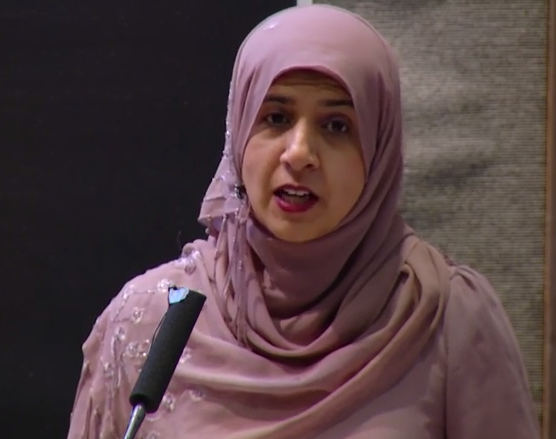Hijab and Niqab: Muslim Women 'Cover Themselves to Assert Their Identity'

The Qatar women's basketball team withdrew from the Asian Games in South Korea last week, after the country banned the team members from wearing the hijab, a veil that covers the head and chest.
Although the ban was motivated as part of a regulation "applied on global scale," some critics interpreted the move as discrimination against people of a certain faith.
The Camden School of Girls in London recently barred a Muslim female student from wearing the niqab, a veil which covers the whole face with the exception of the eyes.
A statement from the school reads: "Inappropriate dress which offends public decency or which does not allow teacher-student interactions will be challenged."
Following the incident, hundreds of people signed a petition, Stop the Islamophobia, urging the school to apologise and allow its students to wear garments which are part of their traditions and cultural beliefs.
Covering is an identity statement

Qualified barrister Samia Khan, along with socio-political researcher Adviya Khan, co-founded Hijablicious - a fashion blog aimed at promoting "modest yet stylish clothing" whose members contribute to panels and discussions around issues which affect women, particularly Muslim women. She told IBTimes UK that there is not always one specific reason why Muslim women wear the veil, whether it is a hijab or a niqab.
"It can be out of religious conviction yes, but it can also be a political statement, a feminist choice, a form of asserting identity and standing out," she said.
"It can also be a cultural tradition, a fashion statement and more. Muslim women are not one homogeneous block, and come from a variety of traditions, ethnicities and racial backgrounds. Their decisions are influenced by their gender, personalities, professions, and class, as much as their religion and culture.
"We must remember that identity is fluid," Khan continued. "In the case of the Camden school's girl, just because she started wearing a niqab now, doesn't mean she will continue to do so in a year, nor does it mean she was brought up in a family of women who wear a niqab."

British writer Shelina Zahra Janmohamed - author of Love in a Headscarf and founder of Spirit21, a blog which she defined as "a space to bring colour to this monochromatic world" - also believes that wearing the veil is a woman's expression of her identity.
"The discussion around covering usually centres on the oppression of women, but most of the women who cover themselves freely choose to do it," she told IBTimes UK.
"Women who cover themselves want to assert their identity: I wear a headscarf and face veil and I chose to do that before I got married. My husband said he does not mind whether I wear these garments or not, because it is not his decision to tell his wife what she should wear.
"And a lot of Muslim women find their own reasons to cover. Sometimes, they even do it to go against their parent's will, they do it to express their identity," she continued.
"Young men and women, especially during their twenties, explore who they are and try to find different ways to express themselves. The veil is one of the ways.
"There are studies that show, for example, that women who are covered are sometimes rejected for a job. Women know that they will have difficulties if they decide to cover themselves and if they still do it is because they genuinely believe in it, even if it makes their life harder."
Criticism of covered women is part of a bigger problem
According to Janmohamed, the criticism of covered women is part of "the way we tend to look at women: as if they were just objects."
"People tend to see veiled women just in pictures", she said. "They don't speak with them and they cannot see that a lot of these women are very smart, well educated, they have good jobs.
"This is just another side of a much bigger problem: we tend to see women as just bodies and objects and this is an issue that feminists have been trying to tackle for a long time."
Referring to the incident of the Qatar team, Khan said that the women did the right thing to withdraw, because they refused to "be judged by a piece of cloth on their head, as opposed to their sports skills."
"You can even go far as to say they are, ironically, being oppressed by the games officials. As women, they have taken the decision themselves, and shown that their identity cannot be negotiated."
© Copyright IBTimes 2025. All rights reserved.






















